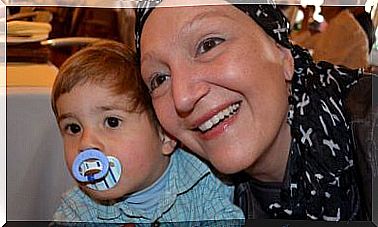Help Your Child Understand His Emotions

ion Emotions are part of our life from birth to departure. Without a doubt, they are important because they make our happiness or sadness. That is why it is imperative to help your child understand his emotions.
Only children’s emotional intelligence will allow us to identify and recognize all emotions. In this way, it is possible for the child to achieve good self-knowledge as well as good management of social relationships.
The value of emotional intelligence
Emotional intelligence allows you to control your emotions in the most appropriate way. It basically consists of knowing and recognizing, that is, knowing what they are but also identifying which one is present in a given situation.
From that state it will be possible to normalize children’s emotions. Children are transmitted the certainty and tranquility that we are all traversed by them. But the important thing is to accept that there is such an emotion to handle it correctly.

Expressing emotions generates a certain well-being and relief, at the same time that it enables a better knowledge of oneself. Hence, it is so important that parents explain to children the value of communication to tell what is happening and how they feel.
Of course, this reinforces the bond between parents and children, in addition to increasing the affectivity of this type of relationship. So learning about emotions in the family will open a path to knowledge and facilitate understanding among household members.
How do I help my child understand his emotions?
Of course it is not an easy task to help the little ones to develop their emotional intelligence. Communication and empathy will be two allies in this complex mission. Now, there are a number of tips that you can consider if you are trying to help your child understand their emotions:
- Understand that children’s emotions are important. Something that is irrelevant to the adult for the minor can be fatal. So, it is vital to be aware not only of ours, but also of yours. Accept them, don’t deny or avoid them.
- Become their example. Parents become role models for children. Thus, the boy will learn to face his emotions from the observation of his parents. Face your emotions appropriately.
- Give him words to express what he feels. It is essential that the baby can put his feelings into words. Teach him the terms appropriate to his emotions. You must get the infant to name his emotions.
- Encourage the child to talk about what is happening to him. Express emotions, what they feel and how they are. Cooperate so that the child comes into contact with what is inside him.

- Manage your emotions before they get the better of you. The idea is to respond to what the little one feels, preventing those feelings from getting out of control. Precisely, talking about emotions before the outbreak teaches you to face moments of crisis.
- Time to think of solutions. When the child has to face situations that generate discomfort, allow him to reflect on possible solutions. Let him express his own ideas.
- Teaches to identify different emotions. Create characters with different faces (sad, angry, happy) to express their feelings. In this way, you can also associate certain gestures and body expressions with certain emotions.
- Time to ask and cross-examine. Consult at all times how your child feels about the situations that he is experiencing – good or bad -, not simply what has happened.
- Normalize the emotions you feel. Do not judge or criticize, much less minimize what is happening to the little one. With empathy he shows that what he feels is as normal as it is reasonable as long as it adjusts to the lived situation.
- Let’s play it has been said! There is nothing better than helping children understand their emotions than games. Bring them closer to their feelings through a variety of playful resources with emotional content to play as a family.









